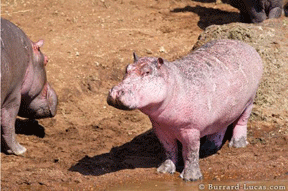100-Year-Old Belgian Tree Is World’s Most Social Media-Savvy Plant
This is begging for a “You know you’re a treehugger if…” joke, the punchline being “if you have a tree as your friend on Facebook.” And there is a century-old tree in Belgium that can fit the bill. It is actually a very social media-savvy tree, with a Twitter stream and Flickr account. It is actually part of a really cool project that brings the life of a tree into the same daily buzz as our human lives, including leaf-eye views of what it “sees” every day.

io9 writes, “The tree was fitted out with all its gear with help from European magazine EOS. Learn more about this amazing tree on the Talking Tree site.” The feeds from the tree aren?t just for social media fun – it also transmits information about particulate matter in the environment and weather conditions to researchers.
“They analyze what the tree sees and senses, then translate that into updates like “Won’t be doing too much photosynthesis in this cloudy weather,” and “This ozone concentration makes it difficult to do my job.” It also advises people to ride their bikes on days with air pollution.”
The Twitter stream has updates on what the tree is pondering, including links to what the world looks like from its branches. The photos are uploaded on Flickr, and show some lovely skies and a peek at the road below.
Currently the Talking Tree has nearly 4,200 friends on Facebook, with more requests every day of people wanting to follow along during a tree’s life.
It’s a fun project, and a great way to remind us that plants expe-rience the world around them too, even if we don’t usually hear their thoughts.
Rare Pink Hippo Spotted in Kenya
It’s more than just a hallucination when you’re a little on the high side – pink hippos are real! A very rare pink hippopotamus was spotted by nature photographers Will and Matt Burrard-Lucas during a visit to the Masai Mara in Kenya. Spotting the animal was lucky for at least two reasons – first, their guide had heard rumors about it, but didn’t know where to find it, and second, animals that suffer this condition don’t usually live very long. But you might be surprised to know that this is not albinism, but something else entirely.

Rather than albino, the young hippo is actually leucitic – it has some pigmented spots, especially along its back and head, and has dark eyes whereas albino animals have blue eyes. Usually, animals with these conditions don’t survive since they’re easily spotted by predators. However, who messes with a hippo, even if it is pink??
This one is young, but the photographers report that it is also quite shy, keeping close to its mother. And mother hippos are known for being extremely protective. I think this little one is safe for now
The Burrard-Lucas brothers state, “Being an animal that is so strikingly different often results in a hard life; these creatures frequently become outcasts, rejected by their conventionally colored peers. In this case however, we were relieved to note that the other hippos seemed to be treating the pink hippo just like any other.”
Noisy Coral Reefs = Healthy Coral Reefs?
You Just Have to Listen Closely Scientists from Exeter University and Bristol University might have just found a new way to evaluate the condition of coral reefs. It’s pretty simple when you think about it: You just listen. Indeed, each reef has its own noise signature, and reefs with more corals and fish generate predictably greater levels of noise. By analyzing the sound, you can find out lots of things about both the fish and the corals.
“Lower frequency sounds provided more information on the numbers of fish living on the reef, while the intensity of higher frequency reef sounds gave an indication of coral diversity.” These sounds can travel for
kilometers underwater, and could be used by marine life to find coral reefs and know how healthy and hospitable they are.
This technique has the potential to allow scientists to monitor many more coral reefs while spending a lot less time and money.This monitoring is extremely important because coral reefs are threatened by global warming (many reefs have already been bleached), and because coral ecosystems are massively productive and crucial to the good health of our already stretched oceans.
Maybe someday soon acoustic underwater surveys will be to coral reefs what satellite imagery is to the survey of ground ecosystems.
Shared by TreeHugger, an online media outlet dedicated to driving sustainability mainstream





